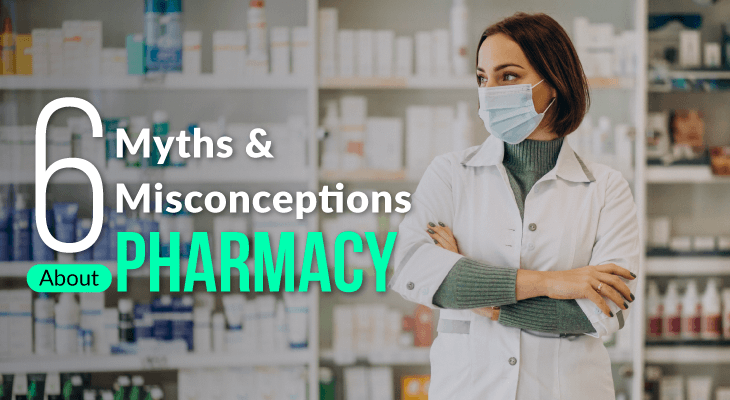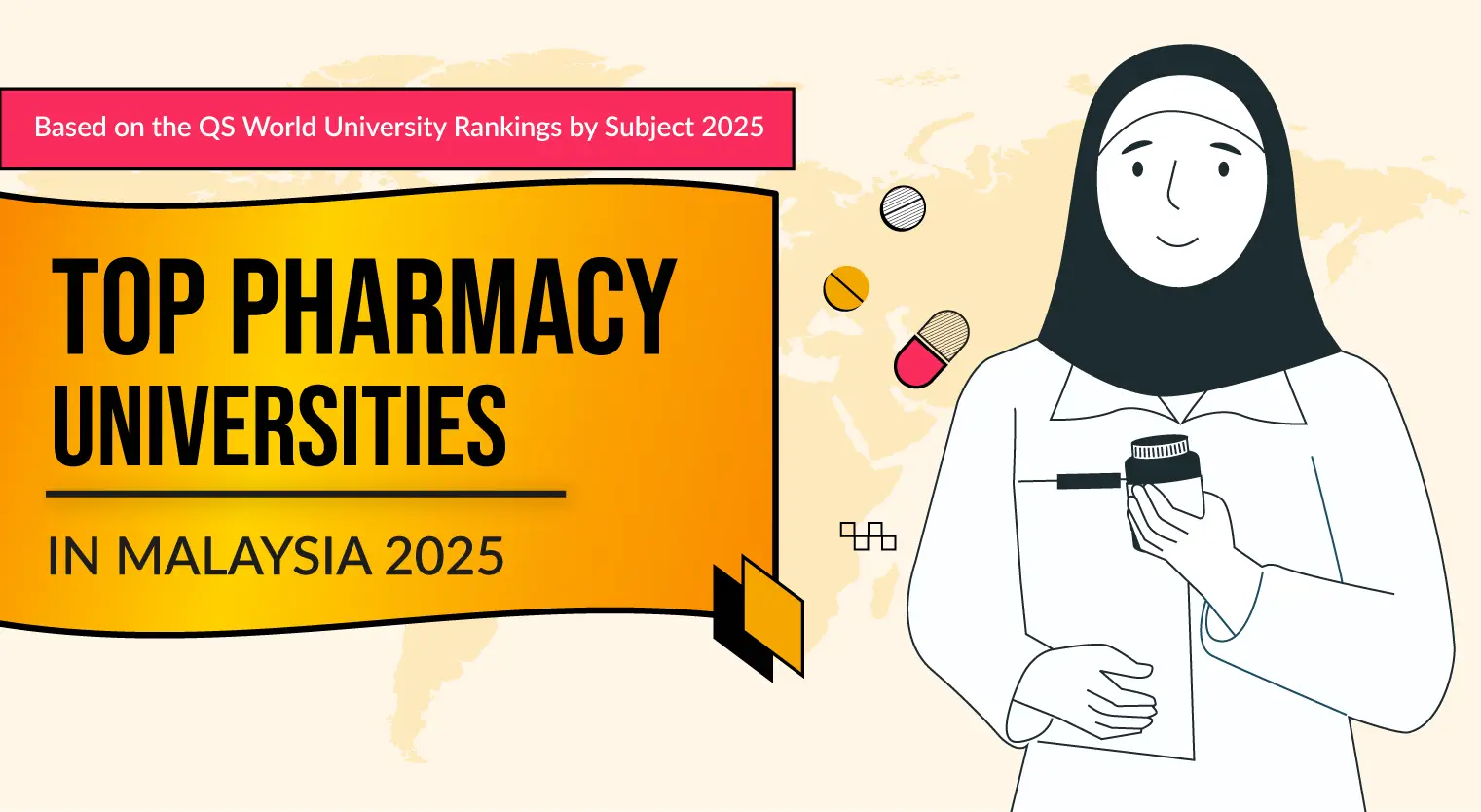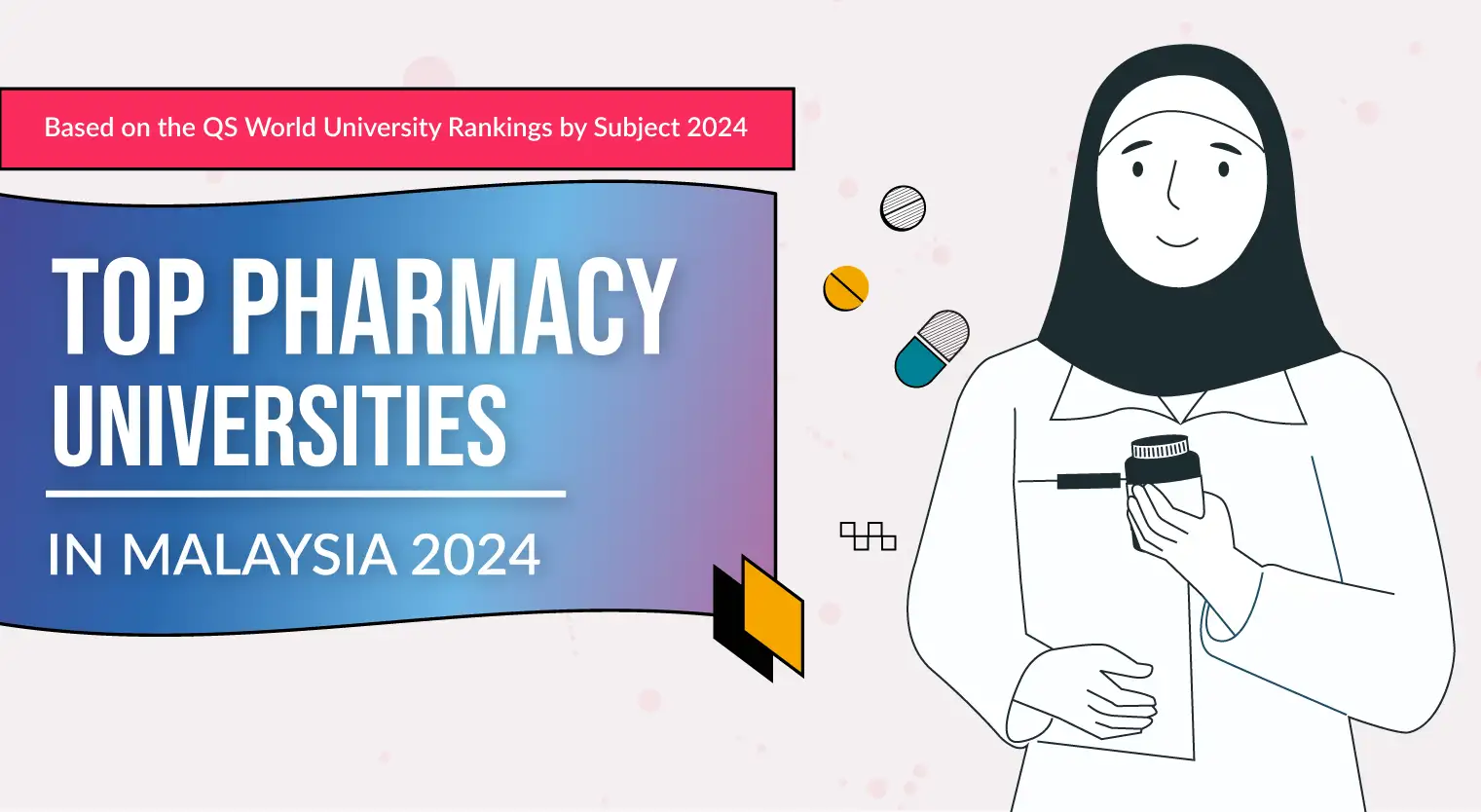6 Myths and Misconceptions About Pharmacy
Is a pharmacist only good for handing out pills? We correct some misconceptions you may have had about the pharmacy field.
Published 19 May 2022

So you’re interested in becoming a pharmacist but you keep hearing stories about how it’s not as good as medicine. Should you believe those stories?
Here are some of the misconceptions that you’ve probably heard about pharmacists and the pharmacy field, and what the actual truth is.
#1. Pharmacists never interact with patients

This is simply not true. Sure, a pharmacist may have less interaction with patients compared to a doctor but it doesn’t mean that counting pills are all you do.
While there are certainly parts of your job that do not require contact with patients (e.g. mixing medications, maintaining drug inventory), a core part of your duty includes providing consultation to patients regarding safe drug-taking practice, drug interaction and contraindications, and how their personal history impacts the type of medication they can take.
Having to consume various medications can get overwhelming for patients so you need to be a clear and efficient communicator. So if you think you can join the pharmacy field to avoid people, think again.
PRO TIP
Want to learn more about becoming a pharmacist? Read our comprehensive pharmacy guide here.
#2. You can only work in hospitals or community pharmacies

A pharmacist can work in a variety of settings. Sure, most will go on to work in hospital pharmacies and community or retail pharmacies (e.g. Caring Pharmacy, AA Pharmacy). However, there are plenty of other jobs for pharmacists too.
For starters, you can go into industrial pharmacy where you work in clinical research, product development and pharmaceutical manufacturing to develop, improve and maintain the quality of drugs. You could also explore military pharmacy where you could work in a military hospital and assist with military peacekeeping operations and humanitarian assistance. Another fascinating field is pharmacy informatics, where you’ll integrate data and technology to improve the outcomes of medication.
The bottom line is that the playing field is a lot larger than you think.
#3. You can only work as a pharmacist

While a pharmacy degree is typically meant to prepare you to become a pharmacist, that’s not your only career prospect.
Your knowledge of medicine and human physiology is useful even outside of the clinical setting. Alternative pharmacy careers such as cosmetic chemist, medical science liaison and medical writer are open to you. Your background can help you go into consultancy where you act as a pharmaceutical consultant for insurance companies and regulatory bodies. What’s more, there’s also teaching and academia as well as administration and policy-making.
Rest assured, there are plenty of jobs you can apply for with your pharmacy degree.

#4. A pharmacist's sole duty is to dispense medicine

Without a question, one of the most important jobs of a pharmacist is to dispense medication — i.e. supplying medicine to a patient based on the prescription with clear instructions and advice on use.
But your duty does not end there.
On top of dispensing medication, you’ll also play the role of a consultant by guiding patients on the proper way to take their medication and how to use medical devices such as blood glucose metres and blood pressure monitors.
In hospitals, pharmacists are often consulted by doctors and other healthcare professionals in selecting the appropriate treatment and medication. You’ll also be involved in the manufacturing of sterile medicines (e.g. injectible antibiotics, nutritional infusions, sterile eyedrops) and managing the purchase and inventory of medicines for the entire hospital.
What’s more, if you go into compounding pharmacy, your duty will also include mixing and combining medication to create a medicinal product that’s tailored to the exact needs and requirements of a patient.
As you can see, a pharmacist does more than just stand at a counter and distribute pills.
Apply for university with EduAdvisor
Secure scholarships and more when you apply to any of our 100+ partner universities.
Start now#5. The pharmacy field has no specialties

Contrary to what you may have heard, the pharmaceutical profession, like the medical field, has its own set of specialisations. After all, the world of drugs and medication is a big field and it’s only logical that there are different types of specialisations.
Some of the specialties you can go for are pharmacotherapy (ensures safe use of medication as part of an interprofessional treatment team such as in hospitals), oncology pharmacy (medication therapy for cancer patients), infectious diseases pharmacy (use of microbiology and pharmacology to rapidly resolve infections), ambulatory care pharmacy (provision of healthcare services for ambulatory patients) and psychiatric pharmacy (pharmaceutical care for patients with psychiatric illnesses).
#6. Pharmacy work is not as important as medical work

Sure, doctors save lives. They perform surgery, answer to emergencies and make life-saving diagnoses. But they’re not the only ones who are making a difference.
Pharmacists play an essential part in the healthcare field. Without pharmacists, there will be no one to ensure that patients are getting the best results and outcomes from their medications. As an expert in medication with extensive knowledge of drug composition, pharmacists are making sure that different medications don’t interact and checking whether dosages need to be adjusted. This may not seem crucial if all you have is a common cold, but when it comes to critical illnesses, it can make all the difference.
So, while a pharmacist may not be on the front line, they remain an important part of the healthcare field.

#Bonus: Pharmacists cannot prescribe medication

Well, yes… and no. The answer may not be as straightforward as it seems.
It’s important to note that there are several categories of controlled medicines, specifically Group B and Group C. While Group B medicines must be prescribed by a doctor, Group C medicines can actually be supplied by a pharmacist without a prescription. You may think that these are limited to over-the-counter medications (e.g. paracetamol) but some examples of Group C medicines include antihistamines (for allergies), antidiabetics and inhaler medications.
Note that doctors often prescribe Group C medications too. So, while pharmacists do not actually write prescriptions (by law, a prescription requires details such as the prescriber’s signature, name of patient and dose), they can still provide people with crucial medication for a variety of minor illnesses and diseases.
Pharmacy is an important part of the healthcare system and it should not be underestimated. If you want to work in a field that actively contributes to the betterment of society, you definitely can’t go wrong with pharmacy.






